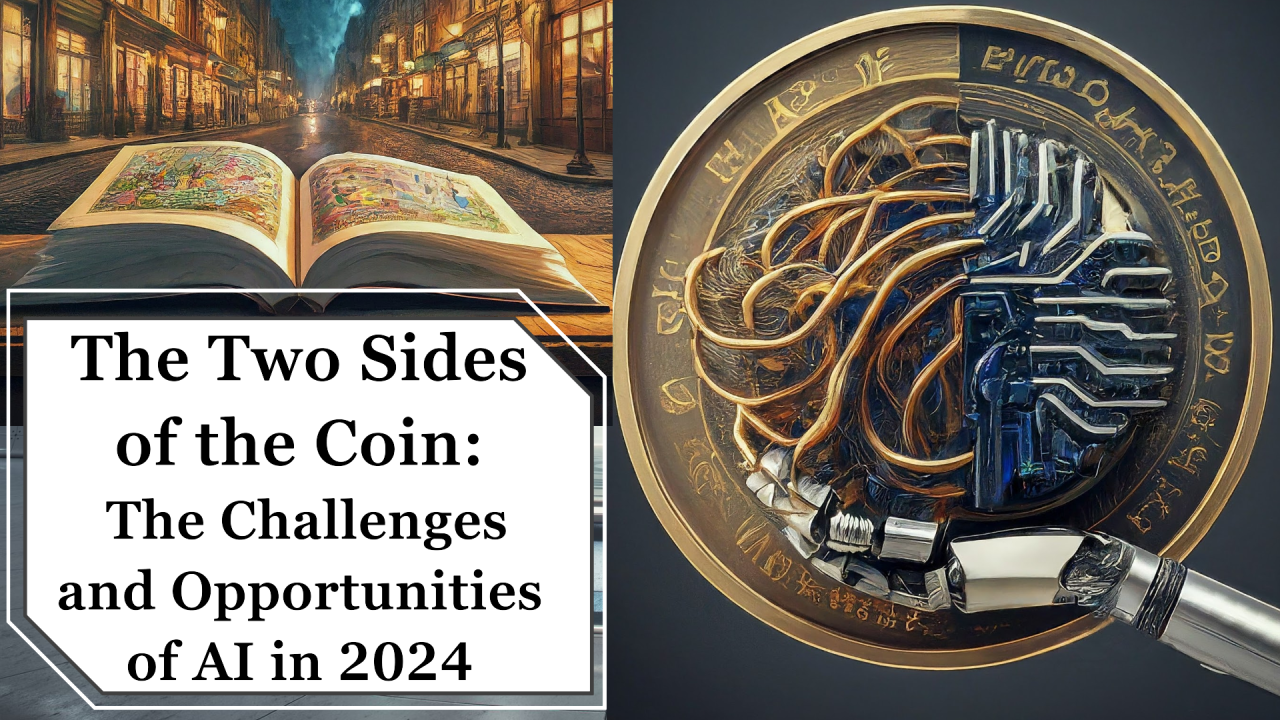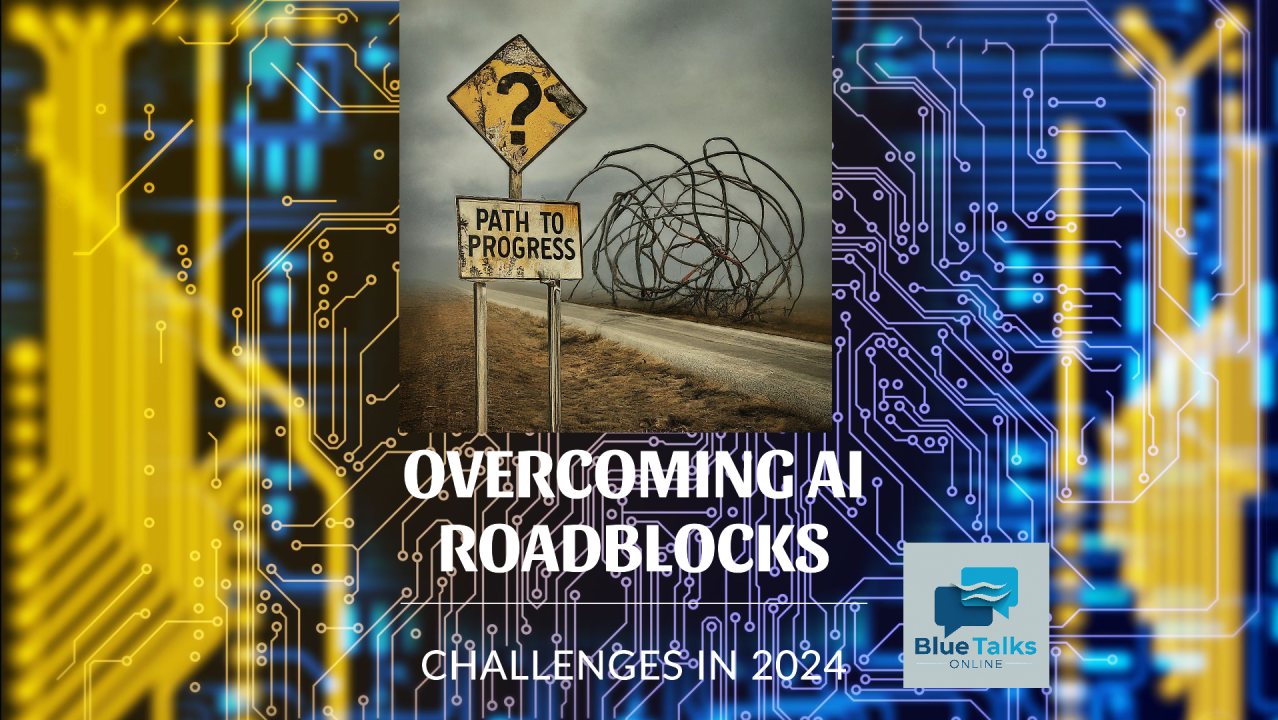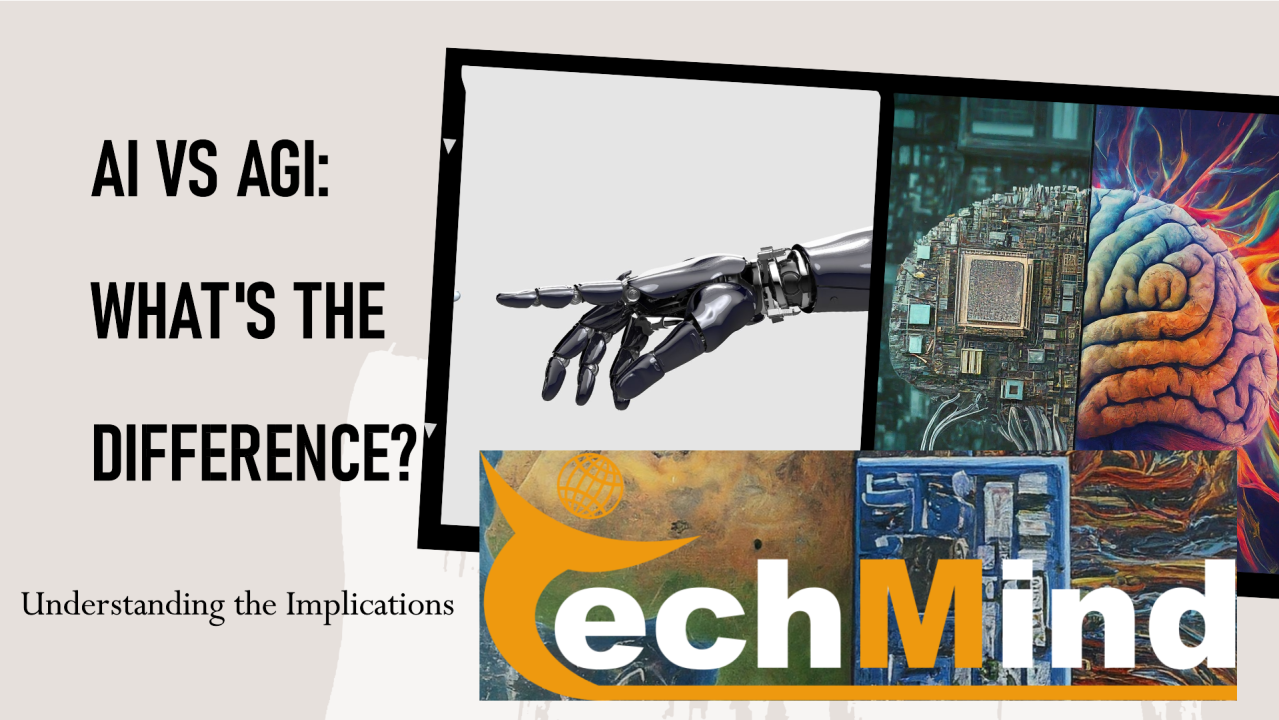As we step further into the era of artificial intelligence (AI), the technology continues to evolve at a rapid pace, offering unprecedented opportunities and transformative potential across various sectors. However, amidst the excitement and promise, AI also faces significant challenges and obstacles that must be addressed to ensure its responsible and ethical deployment. In this article, we explore some of the key challenges of artificial intelligence in 2024 and the strategies being employed to overcome them.
Ethical AI and Bias Mitigation:
One of the most pressing challenges in AI is the need to develop ethical frameworks and guidelines for its deployment. AI algorithms can inadvertently perpetuate biases present in the training data, leading to discriminatory outcomes in areas such as hiring, lending, and criminal justice. Addressing bias in AI requires a concerted effort to identify, mitigate, and prevent bias throughout the entire AI development lifecycle. Strategies include diversifying training datasets, employing fairness metrics during model development, and implementing algorithmic auditing techniques.
Transparency and Explainability:
As AI systems become increasingly complex and opaque, there is a growing demand for transparency and explainability. Users, regulators, and stakeholders seek to understand how AI decisions are made and the factors influencing those decisions. Ensuring transparency and explainability in AI algorithms is crucial for building trust, fostering accountability, and addressing concerns about algorithmic bias and discrimination. Researchers are developing techniques for “explainable AI” that aim to demystify the inner workings of complex models and provide insights into their decision-making processes.
Data Privacy and Security:
The proliferation of AI-powered systems raises concerns about data privacy and security. AI algorithms rely on vast amounts of data to train and make decisions, leading to potential risks of data breaches, unauthorized access, and misuse of personal information. Protecting data privacy and security requires robust cybersecurity measures, encryption techniques, and compliance with data protection regulations such as GDPR and CCPA. Governments, businesses, and individuals all have a role to play in safeguarding data privacy and building trust in AI systems.
AI Governance and Regulation:
The rapid advancement of AI has outpaced the development of governance frameworks and regulations to govern its use. As AI technologies become more pervasive, there is a need for clear guidelines and standards to ensure their responsible and ethical deployment. Governments, policymakers, and industry stakeholders are grappling with the challenge of striking the right balance between innovation and regulation to harness the benefits of AI while minimizing its risks. International collaboration and dialogue are crucial for establishing effective AI governance frameworks.
AI and Employment Displacement:
The automation of tasks and jobs by AI and robotics has led to concerns about employment displacement and job loss. While AI has the potential to create new opportunities and enhance productivity, it also poses challenges for workers who may be displaced or require reskilling to adapt to changing labor markets. Addressing the socio-economic implications of AI requires proactive measures such as investing in education, training, and social safety nets to support workers in transitioning to new roles and industries. Fostering lifelong learning and upskilling initiatives will be essential to ensure a smooth transition for the workforce.
AI in Healthcare and Ethics:
The integration of AI into healthcare holds tremendous promise for improving diagnosis, treatment, and patient care. However, it also raises ethical considerations related to patient privacy, consent, and the responsible use of medical data. Safeguarding patient rights and ensuring ethical AI practices in healthcare require robust regulatory frameworks, ethical guidelines, and stakeholder engagement to balance innovation with patient welfare. Transparency in how medical data is used by AI systems and ensuring patient control over their data will be key to building trust in AI-powered healthcare solutions.
Conclusion
In conclusion, while artificial intelligence offers immense potential to transform society and drive innovation, it also presents complex challenges that must be addressed to realize its full benefits. By fostering collaboration, dialogue, and responsible stewardship of AI technologies, we can navigate these challenges and harness the power of AI to create a better, more inclusive future for all. As we move forward, a focus on ethical considerations, responsible development, and robust governance frameworks will be crucial for ensuring that AI remains a force for good in the world.
#BiasMitigation #Transparency #Explainability #DataPrivacy #Security #AIGovernance #Regulation #JobDisplacement #HealthcareEthics #AIOpportunities #AIForGood #ResponsibleAI #AITransformation #Innovation #Productivity #Education #Training #ImprovedHealthcare #PatientCare #ArtificialGeneralIntelligence #AGI #MachineLearning #DeepLearning #DataSecurity



